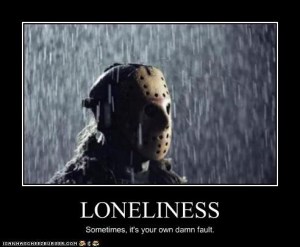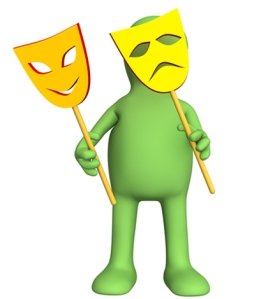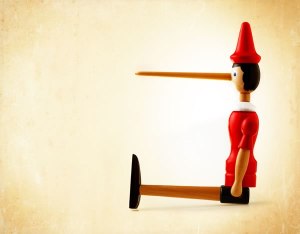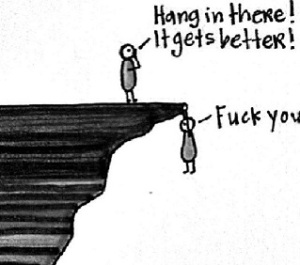“Everyone has the right to believe anything they want. And everyone else has the right to find it fucking ridiculous.”
— Ricky Gervais
Like most people, I’m an avid user of Facebook. I’m slowly delving into other forms of social media. I have a Twitter account, but I hardly ever tweet (If you want boring blog updates, feel free to follow @Rider324. If I ever get a decent amount of followers I promise to be more interesting). I mostly use Twitter to follow a few of my favorite people, especially ones known for causing a bit of controversy with their tweets. Ricky Gervais, Patton Oswalt, and God (actually a writer from The Daily Show) are examples. I’m still trying to understand Instagram and although I watch videos one Vine I’ve never had the desire to post one. So with all of this, Facebook remains the one I am most active on. I belong to several different groups covering my main interests: sports, books, mental health, and several others. I post pictures of my son, memes, (hopefully) witty and thought-provoking statuses, take part in discussions, poke fun at my friends; pretty much all the usual Facebook activities.
So what does any of this have to do with being bipolar? A great deal, actually. I’ve noticed a few trends, some recent and some not so recent. My social media use provides an excellent mood tracker. This is a vital tool in managing bipolar disorder. The downside is that it provides a very public mood tracker. My friends can notice the obvious differences between my depressive and hypomanic states, as well as the occasions in which I’m feeling average. The other problem is that, much like what happens in real life (as stated in last week’s entry), people tend to get driven away and abandon ship. I’ve lost count of how many Facebook friends I’ve lost over time. Most of them bailed because of religious and political statements I’ve either made or shared. I’ve pissed off a lot of people over the years and I can probably count on one hand the number of times I’ve ever apologized for it.
As far as mood tracking goes, the usual pattern is this: when I’m hypomanic my status updates and comments are much less serious. I joke around frequently. My responses are quick and humorous (although in my own humble opinion, I’m goddamn hilarious). I will poke good-natured fun at my friends and they respond in kind. I love that give and take as we troll each other back and forth. When I’m in the throes of depression, a couple of things happen. Firstly, I tend to disappear for weeks at time. Several friends noticed this pattern immediately and I would get frantic private messages and texts asking if I was okay and if I needed help. When I did post, I noticed that my posts tended to be much more aggressive, bordering on outright rage.
I do enjoy debating politics and religion with my friends, but these posts would go beyond that. Looking back, much of what I would post seemed to be indirectly attempting to poke certain people in the eye. With a flaming stick. Obviously, some people took offense and unfriended me. Others engaged in debate in which we mostly decided to agree to disagree. Surprisingly, not many people told me directly that I was as full of shit as the things I ranted about. I don’t mind that. I am a very difficult person to offend. I like to think that I can take as well as I dish it out.
I’m not going to go into exactly what I posted or what my political and religious views are, because that’s not what this blog is about, but rather how my online behavior is affected by my mental illness. I’ve often been told that my posts go too far, or that I’m just angry. I disagree with the latter, but I can understand the opinions about the former.
Again, in reference to last week’s entry, this kind of self-imposed isolation (this time online), either intentional by disappearing, or unintentional by annoying the crap out of people, has consequences. I’d very much like to use Facebook and other forms of social media to promote awareness of mental health issues and help destroy the stereotypes and stigmas that we crazy people face on a regular basis. Eventually I’d like to start a Facebook page just for Tales from the Loony Bin once I get more followers. This would allow me to separate my usual rantings from my discussion of serious mental health issues. The problem is, with many of my posts, people no longer respond. I don’t know how many people in addition to those who unfriended me either ignore my posts or have me blocked. I try desperately to promote this blog but I often feel as if I’ve disenfranchised the better part of my audience.




